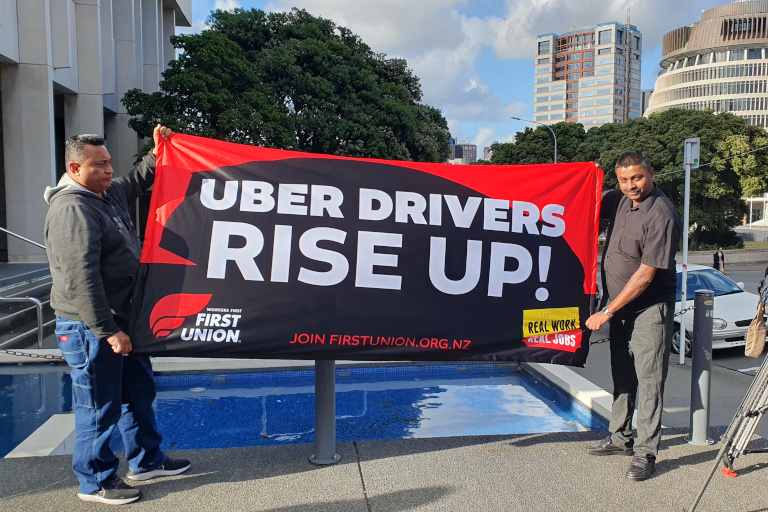What is a man’s life worth? Very little, if they are a prisoner. That must be the attitude of the Department of Corrections, as the terrible details coming out of the inquest into Jai Davis’s death at Otago prison in February 2011 make clear.
Anyone with a conscience reading about Mr Davis’s death must feel anguish and anger. Anguish, that a young man’s life was lost in circumstances that were entirely avoidable. Family and friends are left grieving a death that did not need to happen with no sign, years after their bereavement, that anyone will be held to account for their loss. And righteous anger, observing this injustice and learning, with fresh detail each day, of the cruelty and neglect that are normal life in a New Zealand prison.
A nurse assessing Mr Davis declared him ‘fine’, according to a Corrections officer’s testimony, despite the fact that he “was grey in colour, was scratching his arms, had sunken eyes, slurred speech and breath that smelt like faeces.” The next morning he was dead. No doctor had been called. Dr Nirnajam Sharma, a former contracted prison medical officer, has saidthat a treatment plan would likely have “changed the outcome” had he been contacted. OCF staff were, he said, “conservative” in contacting doctors. Vomiting, with high blood pressure, looking unwell, Mr Davis should have been monitored regularly. Corrections staff claim they did this, but CCTV footage shows no evidence of monitoring happening at the times this was supposed to happen.
It’s hard to avoid the conclusion that a young man was left to die by staff and a system that placed little value on his life, and on the lives of ‘criminals.’ Former prison nurse Jan Horne admits what she calls ‘oversights’ in Mr Davis’s care. She admits talking about prisoners in a derogatory way while at work. Corrections’ own rules state that a doctor must be contacted if a prisoner is being confined to a dry cell. A form was signed by prison manager Ann Matenga to note that she would inform a doctor of this situation. She never did.
Much has been made in media reports of Mr Davis’s gang connections, his drug use and criminal history. But all of this is irrelevant. There is no death penalty in this country, and should be no lives less deserving of proper medical care and protection. The reasons for Mr Davis being in prison should have no bearing on his rights to treatment once he was there. The kind of ‘penal populism’ that encourages us to see prisoners as lesser human beings prepares the way for others’ rights to be lost too.
But that is not the reality, of course. Decades of right-wing ‘law and order’ rhetoric from both parties has demonised and dehumanised prisoners in mainstream discussion and discourse, and no doubt in the minds of those serving the state as screws in prisons. Police inaction after Mr Davis’s death is in striking contrast to their zeal in persecuting Maori and youth for even the smallest offences. As Victoria Davis, Mr Davis’s mother, told the Otago Daily Times, ”This could easily have been anyone’s son and if he was an outstanding citizen I’m sure they [police] would have laid charges.”
This is the wider context to Mr Davis’s death. National and Labour both have so entrenched the system of mass incarceration and its ‘penal populist’ justifications that the servants of the state and capital – the cops and the screws – get a clear message prisoners lives don’t matter. Drug and alcohol counsellor Roger Brooking has an excellent analytical blog that documents, in great detail, the multiple failures of Corrections in this case. Brooking notes everything from the unwillingness to call out doctors to Otago prison for reasons of cost-cutting through to what he calls the “inhumane and degrading” treatment prisoners receive in At Risk cells, treatment he describes as torture. Brooking looks at the 90 ‘unnatural’ deaths in prisons over the last decade and shows patterns of mistreatment, violence, and neglect. This is Corrections’ disgrace.
New Zealand’s drug laws are also exposed as criminal injustice. Did a young man really need to die, held in a cell, over cannabis or prescription medicines? The Misuse of Drugs Act gives the police and courts enormous powers to disrupt and damage lives – disproportionately young, poor, and Maori lives – to no social good. Time in prison further damages people. The human waste of this whole system should be obvious, and yet, because it serves the needs of our rulers, it continues unquestioned by either major party. Whatever the individual responsibilities of staff at Otago prison – and they should be held to account for their role in this death – Mr Davis was the victim of a wider system of oppression and control.
That analysis matters, but so does the immediate struggle for justice. We should salute Victoria Davis for her intransigent battle to get justice for her son. The police may have decided not to prosecute, but her campaigning has ensured her son’s story is now receiving, finally, detailed coverage. ”Now we know where we stand.” Ms Davis told the Otago Daily Times. “Jai didn’t deserve to die like that and people need to be made accountable.”









